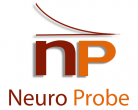The recruitment and trafficking of leukocytes are essential aspects of the inflammatory process. Although chemokines are thought to be the main regulators of cell trafficking, extracellular cyclophilins have been shown recently to have potent chemoattracting properties for human leukocytes. Cyclophilins are secreted by a variety of cell types and are detected at high levels in tissues with ongoing inflammation. CD147 has been identified as the main signaling receptor for cyclophilin A (CypA) on human leukocytes. It is interesting that the expression of CD147 is elevated on leukocytes from inflamed tissue, suggesting a correlation among the presence of extracellular cyclophilins, CD147 expression, and inflammatory responses. Thus, cyclophilin-CD147 interactions may contribute directly to the recruitment of leukocytes into inflamed tissues. In the current studies, we show that activated human T lymphocytes express elevated levels of CD147, compared with resting T cells and that these activated T cells migrate more readily to CypA than resting cells. Furthermore, we show that unlike resting CD4+ T cells, the cyclophilin-mediated migration of activated T cells does not require interaction with heparan sulfate receptors but instead, is dependent on CD147 interaction alone. Such findings suggest that cyclophilin-CD147 interactions will be most potent when leukocytes are in an activated state, for example, during inflammatory responses. Thus, targeting cyclophilin-CD147 interactions may provide a novel approach for alleviating tissue inflammation.
http://www.jleukbio.org/content/82/3/613.long
